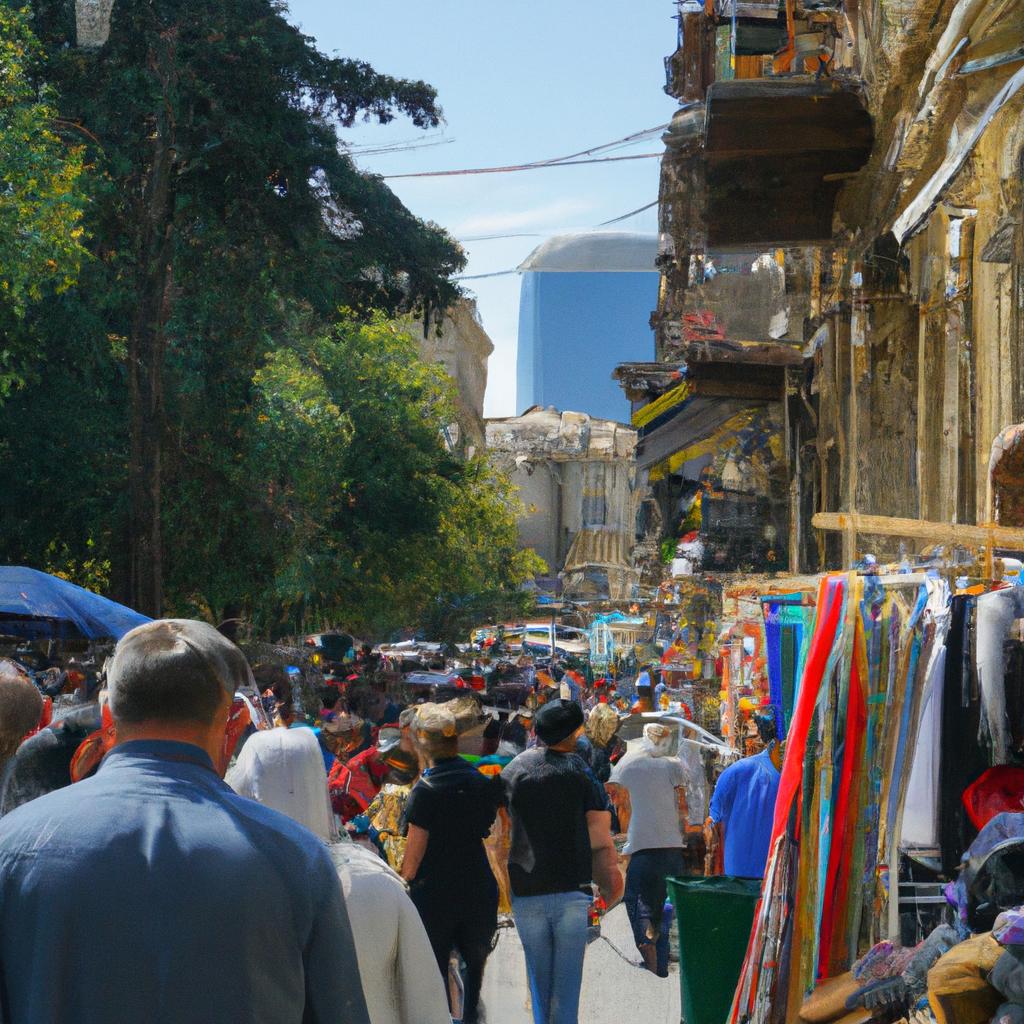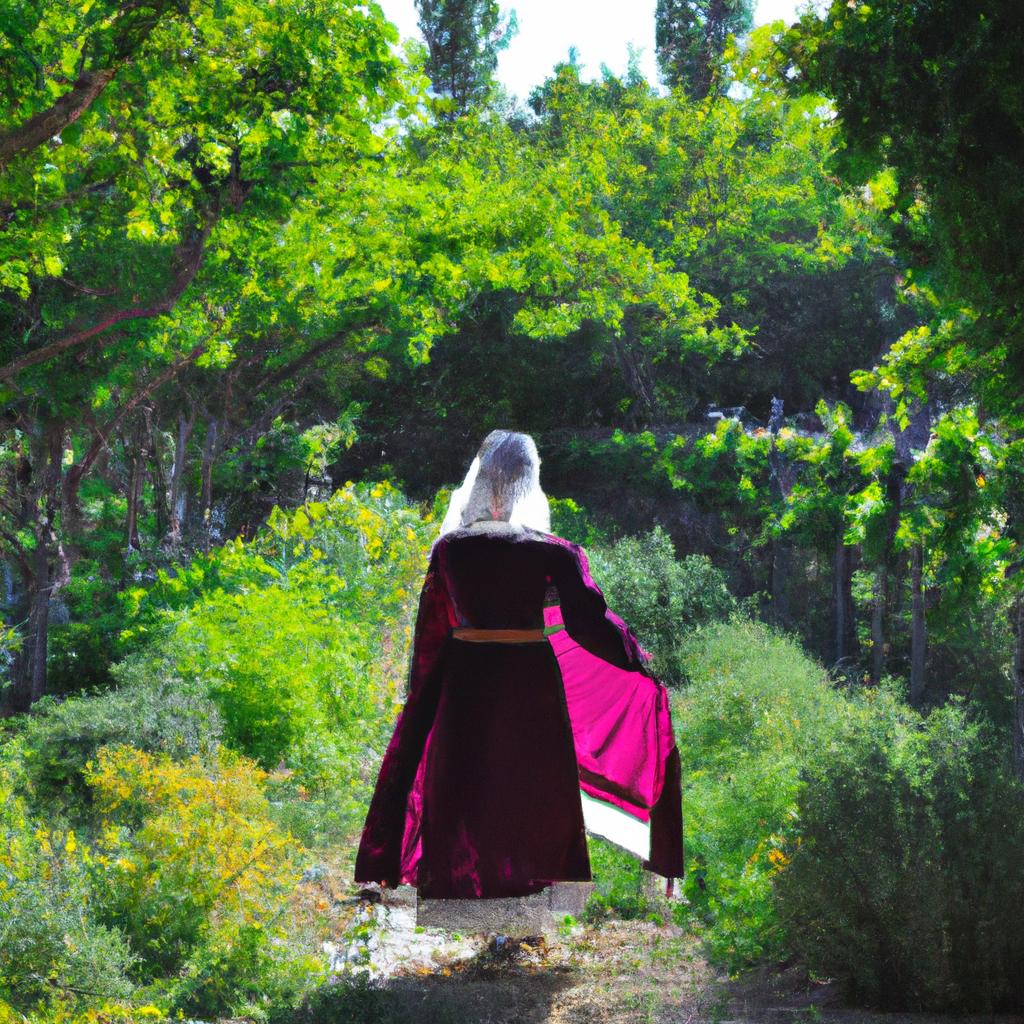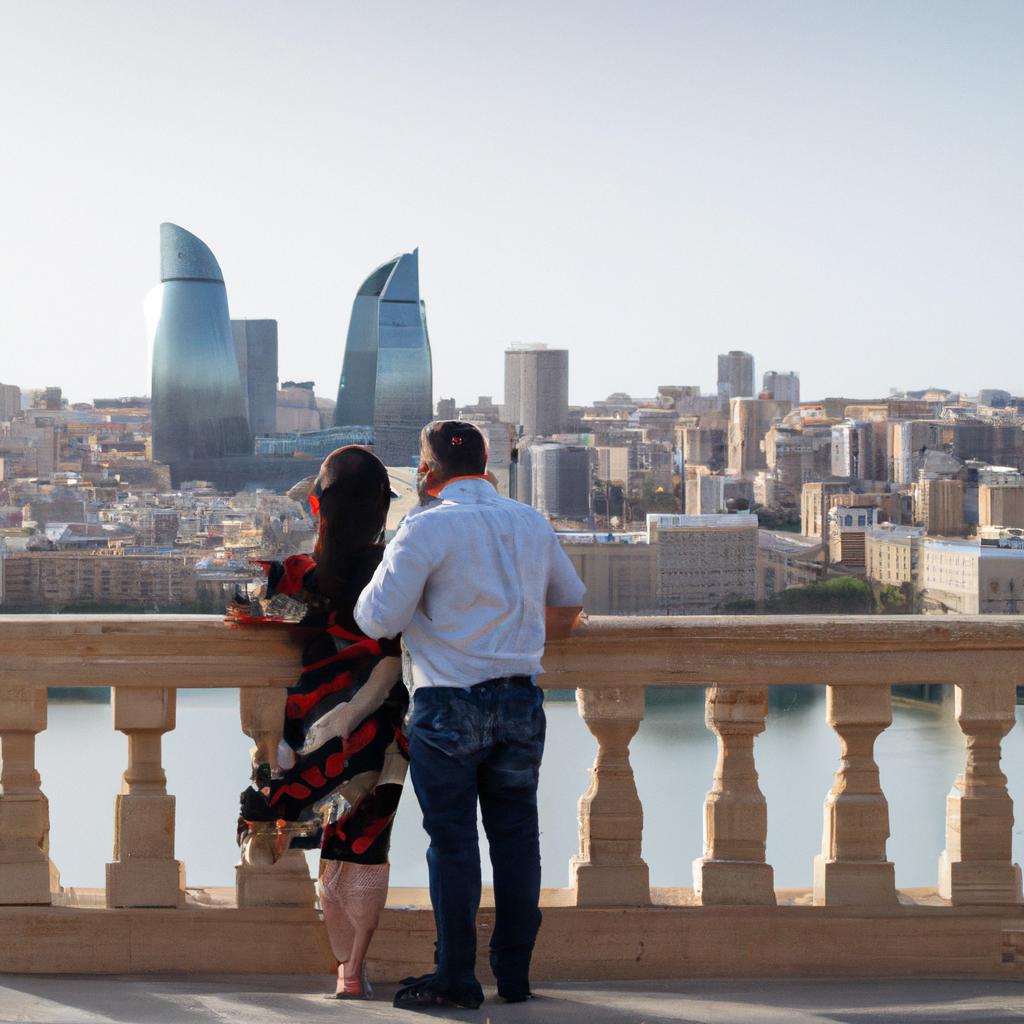Discover the timeless love story of Ali and Nino in this article. Explore the historical significance and cultural context behind the novel.
Have you ever come across a book that whisked you away to a different era and place? One that immersed you so deeply that you felt like a part of the story? “Ali and Nino” is such a novel. Taking place in Baku, Azerbaijan, during the early 1900s, this enchanting love story has captivated readers from around the globe.
Written by Kurban Said, an enigmatic pseudonymous author, “Ali and Nino” intricately weaves the tale of two young lovers from divergent cultural backgrounds. Ali, a Muslim boy from a noble family, and Nino, a Christian girl from a wealthy Georgian family, face a profound test of their love as they navigate the complex tapestry of their cultures and the political upheaval surrounding them.
Yet, “Ali and Nino” is more than just a love story. It serves as a window into the rich cultural diversity and historical importance of Baku. The city itself was a melting pot of various cultures and religions, with influences stemming from Persia, Russia, and Europe. Against this vibrant backdrop, the novel explores themes of nationalism, identity, and gender roles, making it a thought-provoking read for people from all walks of life.
So, let’s venture deeper into the world of “Ali and Nino” as we unravel its historical significance and cultural context.
The Characters

Ali and Nino’s Background and Upbringing
Ali and Nino hail from contrasting cultural and religious backgrounds, as mirrored in their upbringing. Ali grows up in a Muslim household, instilled with values of honor and duty. He receives an education in a traditional Islamic school, becoming fluent in Arabic and Persian. On the other hand, Nino is raised in a Christian family with a European education, effortlessly navigating multiple languages, including French, German, and Russian.
Their Personalities and How They are Shaped by Their Surroundings
Ali and Nino’s personalities are molded by their surroundings and cultural upbringings. Ali exemplifies bravery and honor, fiercely devoted to his family and country. However, his impulsive nature and fiery temper often land him in trouble. In contrast, Nino is portrayed as a free-spirited and independent woman, crusading against the societal expectations placed upon her. She remains resolutely loyal to Ali while sharing his love for their homeland.
The Dynamics of Their Relationship
At the core of the novel lies the profound relationship between Ali and Nino. Their love is tested by the cultural and political disparities of their time. Ali grapples with balancing his devotion to his country and his love for Nino, while Nino navigates the weight of societal expectations placed on her as a woman in a patriarchal society. Despite the challenges they face, the unwavering strength of their love endears them to readers, forever etching their names among the most beloved literary couples.
The Setting

Situated on the Caspian Sea, Baku, the capital city of Azerbaijan, brims with a kaleidoscope of cultural richness and diversity. A hub of trade and culture for centuries, Baku has been shaped by the influences of various empires and cultures, including Persia, Russia, and Europe, resulting in a harmonious blend of Eastern and Western elements.
The Cultural Diversity of Baku
Baku thrives on contrasts, with ancient architectural wonders standing tall alongside modern skyscrapers. The old city, Icheri Sheher, a UNESCO World Heritage Site, houses numerous historical landmarks, including the iconic Maiden Tower and the majestic Palace of the Shirvanshahs. The cityscape also boasts contemporary marvels like the Flame Towers and the Heydar Aliyev Center.
Baku is a melting pot of diverse ethnicities and religions, with Azerbaijanis, Russians, Armenians, Jews, and many more calling it home. This multicultural tapestry is mirrored in the city’s gastronomy, music, and art. Baku tantalizes taste buds with delectable dishes such as pilaf, kebabs, and dolma, while the melodies of traditional Azerbaijani music, including mugham and ashiks, fill the air.
The Impact of World War I and the Russian Revolution on Baku
The early 1900s proved to be tumultuous for Baku, caught in the grip of both World War I and the Russian Revolution. The war brought economic hardship and political instability, while the revolution saw the birth of the Azerbaijan Democratic Republic in 1918.
Baku, at the time, emerged as an oil industry hub, bestowing the city with great wealth. However, this prosperity also gave rise to exploitation and inequality, as control over the industry fell into the hands of foreign oil companies. The resulting wealth gap fueled political unrest within the city.
The Clash Between Eastern and Western Cultures in the City
Baku’s unique fusion of cultures sparked tensions between Eastern and Western values. The city played a pivotal role in pioneering women’s rights in Azerbaijan, empowering women to actively participate in society and politics. Still, conflicts simmered as traditional Muslim values clashed with the more liberal ideals of the Western world.
This clash finds reflection in the pages of “Ali and Nino,” as the two protagonists grapple with bridging their cultural divide. Their love story serves as a powerful representation of Baku’s cultural diversity and intricacies, making “Ali and Nino” an indispensable literary gem for comprehending the city’s history and heritage.
Themes and Motifs

As you delve into the pages of “Ali and Nino,” you’ll encounter a tapestry of recurring themes and motifs, skillfully interwoven throughout the narrative. This timeless novel delves deep into the complexities of love, nationalism, gender roles, and identity. Let’s explore each of these themes more closely.
Love and Sacrifice
At its core, “Ali and Nino” is a testament to the power of love. However, this is no ordinary love story. Ali and Nino’s love defies cultural and religious boundaries, intensifying the complexities of their relationship. In their pursuit of love, they brave everything, even standing against their families and the traditions they hold dear.
Nationalism and Patriotism
Set against the backdrop of World War I and the Russian Revolution, “Ali and Nino” casts a spotlight on the themes of nationalism and patriotism. Ali and Nino are both deeply rooted in their respective cultures, proud of their heritage. But they also recognize the dangers of blind nationalism, emphasizing the significance of cultural understanding and acceptance.
Gender Roles and Expectations
“Ali and Nino” delves into the intricacies of gender roles and expectations in a traditional society. Nino emerges as a strong and independent woman who challenges the societal norms imposed upon her. Fearlessly, she raises her voice and fights for her beliefs, defying the established gender roles of her time. Ali, on the other hand, struggles with his own notions of masculinity, grappling with conforming to traditional gender expectations.
The Search for Identity
Lastly, the novel explores the theme of identity in a rapidly changing world. Ali and Nino both seek their place in a society undergoing significant political and cultural shifts. Their journey is a quest to find a sense of belonging and reconcile their cultural heritage with the modern era.
Overall, “Ali and Nino” paints a masterpiece of storytelling, intertwining these themes and motifs seamlessly to create a timeless narrative that continues to resonate with readers across generations.
Historical Significance

The tale of “Ali and Nino” stretches far beyond a mere love story. It mirrors Azerbaijan’s struggle for independence during the early 1900s, personifying the spirit of the Azerbaijani people as they fought against Russian occupation and oppression.
Ali and Nino’s Representation of Azerbaijan’s Struggle for Independence
Ali embodies the essence of Azerbaijan’s fight for independence, embodying the unwavering spirit of a proud Azerbaijani. His love for Nino mirrors his love for Azerbaijan, and his challenges in navigating cultural and political complexities mirror the struggles faced by the Azerbaijani people.
The Novel’s Impact on Azerbaijani Literature and Culture
Considered a masterpiece of Azerbaijani literature, “Ali and Nino” has transcended borders, translated into over 30 languages, and integrated into school and university curricula worldwide. It has become an icon of Azerbaijani culture and identity, with its themes of love, sacrifice, and national pride resonating with readers even today.
The International Reception of Ali and Nino and Its Translation into Different Languages
Since its publication, “Ali and Nino” has garnered international acclaim for its compelling narrative and cultural significance. The novel’s translation into multiple languages, including English, French, German, and Japanese, has further solidified its status as a global literary treasure. Moreover, its impact has extended beyond literature, finding adaptations in film and theater, introducing the story to even broader audiences.
Conclusion

In conclusion, “Ali and Nino” is a timeless love story that transcends cultural and historical boundaries. Its exploration of themes such as love, sacrifice, cultural understanding, and acceptance remains as relevant today as when the book was first published.
Beyond its powerful narrative, the novel encapsulates the struggle for independence that Azerbaijan faced during a time of political turbulence. It stands as a testament to Azerbaijani literature, symbolizing the cultural heritage and identity of the nation. With its translation into numerous languages, the international recognition it has received underscores the enduring relevance and importance of “Ali and Nino” in the realm of world literature.
At TooLacks, we celebrate diversity and strive to promote cultural understanding. We hope this article has inspired you to embark on the journey of reading “Ali and Nino” and discovering the fascinating world of Baku, Azerbaijan. To learn more about us, don’t hesitate to visit TooLacks.



